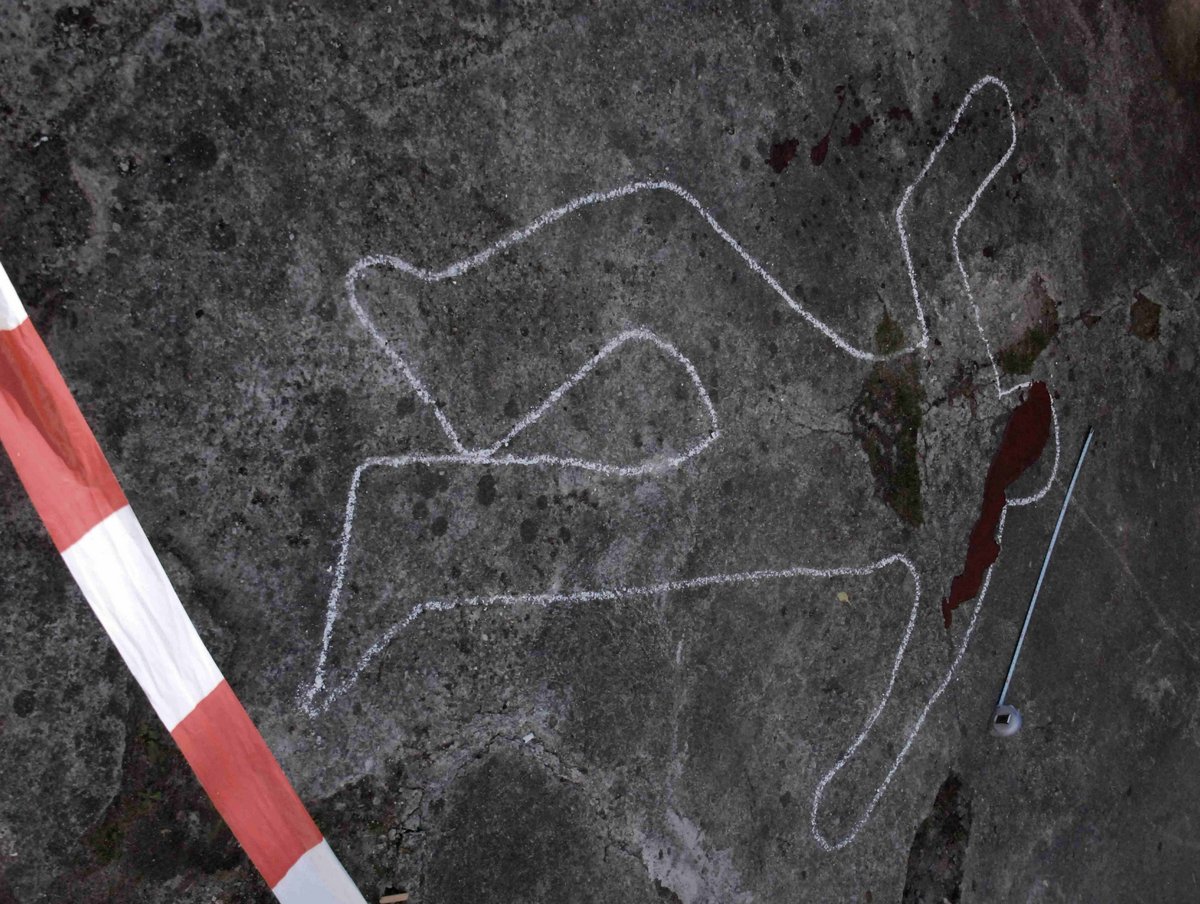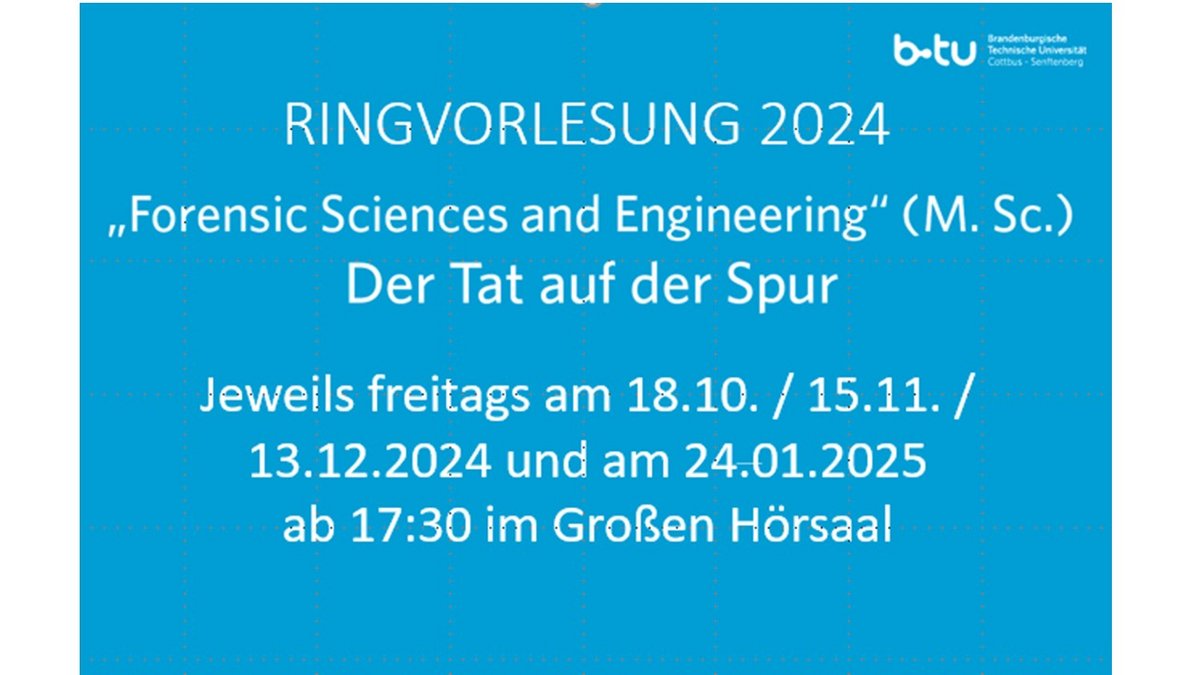Lecture evening provides insights into the reconstruction of crime sequences using traces of blood
The officer is an expert in bloodstain pattern analysis at the Forensic Institute of the Berlin State Criminal Police Office (LKA).
All those interested in this lecture are invited to the large lecture theatre at the Cottbus main campus of the Brandenburg University of Technology Cottbus-Senftenberg (BTU). Admission is free.
Bloodstain pattern analysis can be used to reconstruct the course of a crime based on bloodstains. Was the victim standing or lying down? Is it really the crime scene? Is there evidence of a murder weapon? Was it really a suicide or a perfidious murder? ...
Participants in this lecture will learn, among other things, what secrets the morphology of bloodstains reveals.
The event is organised by the Centre for Continuing Education and the Forensic Sciences and Engineering Master's programme at BTU.
Date: Friday, 13 December 2024, 17:30 to 19:00
Location: Large lecture theatre at the BTU main campus, Konrad-Zuse-Straße 4, 03046 Cottbus
About the Forensic Sciences and Engineering study programme
The Forensic Sciences and Engineering study programme, which leads to a Master of Science degree, is unique in Germany as an extra-occupational continuing education course at BTU Cottbus-Senftenberg. The seminars in the forensic science study programme focus on crime scene work, investigative procedures and the evaluation of evidence as well as its analysis in the context of its successful use in court. The programme is a transdisciplinary academic course at BTU. Forensic knowledge, which can also be used by examiners in the private sector, also characterises the teaching programme.
Overall, forensic science is facing new challenges: The pace of methodological, technical and scientific developments is characterised by digitalisation, new international and European trends, which are pushing law enforcement authorities and examiners, who have so far mostly acted nationally, to their limits. Forensic Sciences and Engineering at BTU is taking on these challenges and is expanding its teaching profile from the winter semester 2025/2026 by offering specialisation certificates in fire investigation, handwriting, white-collar crime and the special area of chemical and biological substances. People who do not have the prerequisites for a Master's degree programme will nevertheless have the unique opportunity to continue their university education in these specialist areas.
Specialist contact
Zentrum für wissenschaftliche Weiterbildung (ZWW)
T +49 (0) 355 69-3680
thomas.hasenauer(at)b-tu.de
Press contact
Kommunikation und Marketing
T +49 (0) 3573 85-283
ralf-peter.witzmann(at)b-tu.de


